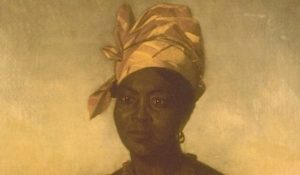
Marie Bernard Couvent
*The birth of Marie Bernard Couvent is celebrated on this date in 1757. She was a Black philanthropist and education advocate.
Born a slave in Benin, Africa, Marie Cirnaire came to New Orleans, Louisiana, and married Bernard Couvent, a carpenter and former slave. Together, they accumulated property and other assets before he died. In August 1831, Couvent, the widow of Bernard Couvent, petitioned the Parish Court to free her slaves, Seraphine, aged 40, and Fillette, aged 45, who had "faithfully served her for a great number of years past, nursed her in sickness at various times."
Only a month earlier, her husband, Bernard Couvent, had asked the Orleans Parish Police Jury for permission to emancipate these same slaves and also asked that the women not be compelled (as state law required) to leave the state after their emancipation. The Police Jury consented to Couvent's request, but he died before the consent could be formally ratified. In this document, Marie Couvent petitioned the court in her own name to be given permission to carry out her husband's wishes. The Parish Court granted her request, and the Police Jury freed the slaves.
In her 70s, Marie Couvent informed Father Constantine Maenhaut, a priest at Saint Louis Cathedral in New Orleans, of her desire to help found a school for Black orphan children. Couvent, a Catholic, considered Father Maenhaut to be a spiritual mentor. In 1832, she recorded her final will. It read, in part: I bequeath and order that my land at the corner of Grands Hommes and Union streets [now Dauphine and Touro] be dedicated and used in perpetuity for the establishment of a free school for the colored orphans of the district of Marigny.
Father Maenhaut and the future clergy of Saint Louis Cathedral were entrusted with supervising this will and its aims. Henry Fletcher, a friend of Bernard Couvent, was tasked with executing the terms of the will. Marie Couvent died on June 28, 1837, at about 80. However, the school she had hoped to establish in her will would not be built until almost a decade later. Fletcher had failed to construct it, primarily due to opposition from city officials. Father Maenhaut set about trying to construct the school and enlisted the aid of Francois Lacroix. Lacroix aided in the foundation of the Society for the Instruction of Indigent Orphans, which raised funds and sued to gain access to Marie Couvent's property.
They won their court case in 1846, and the Institution Catholique des Orphelins Indigents finally opened in 1848, eleven years after Marie Couvent's death. The school, located at the corner of Dauphine and Touro, eventually became the St. Louis School of the Holy Redeemer. Today, as the Bishop Perry School, it continues to provide free Catholic education to young Black children.